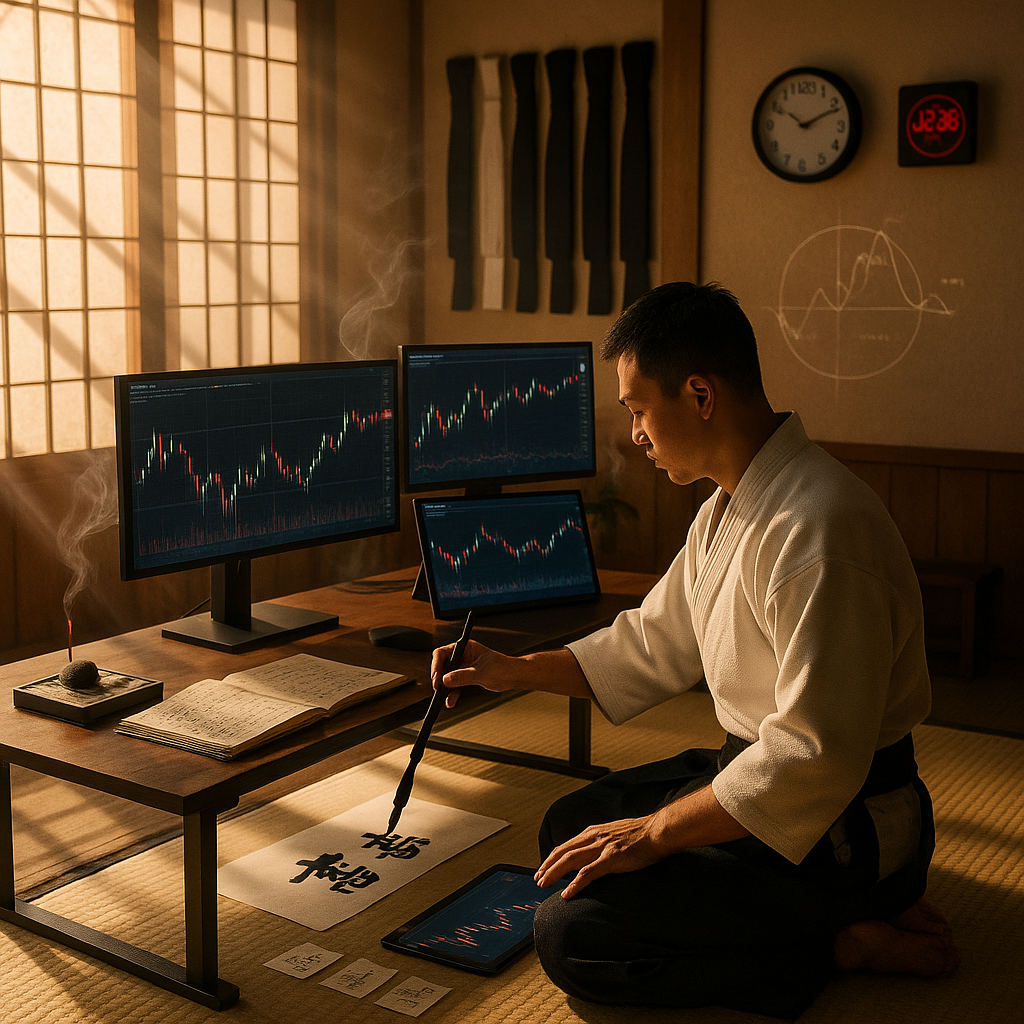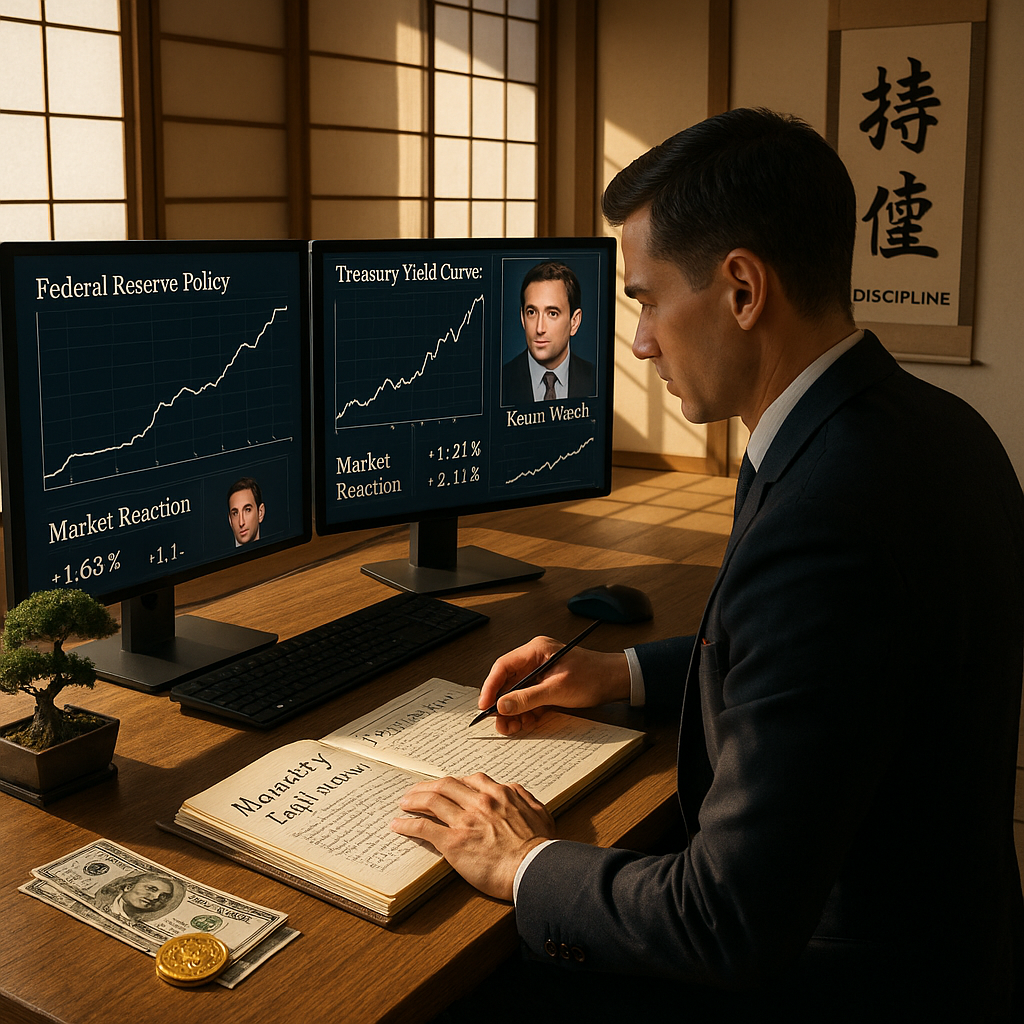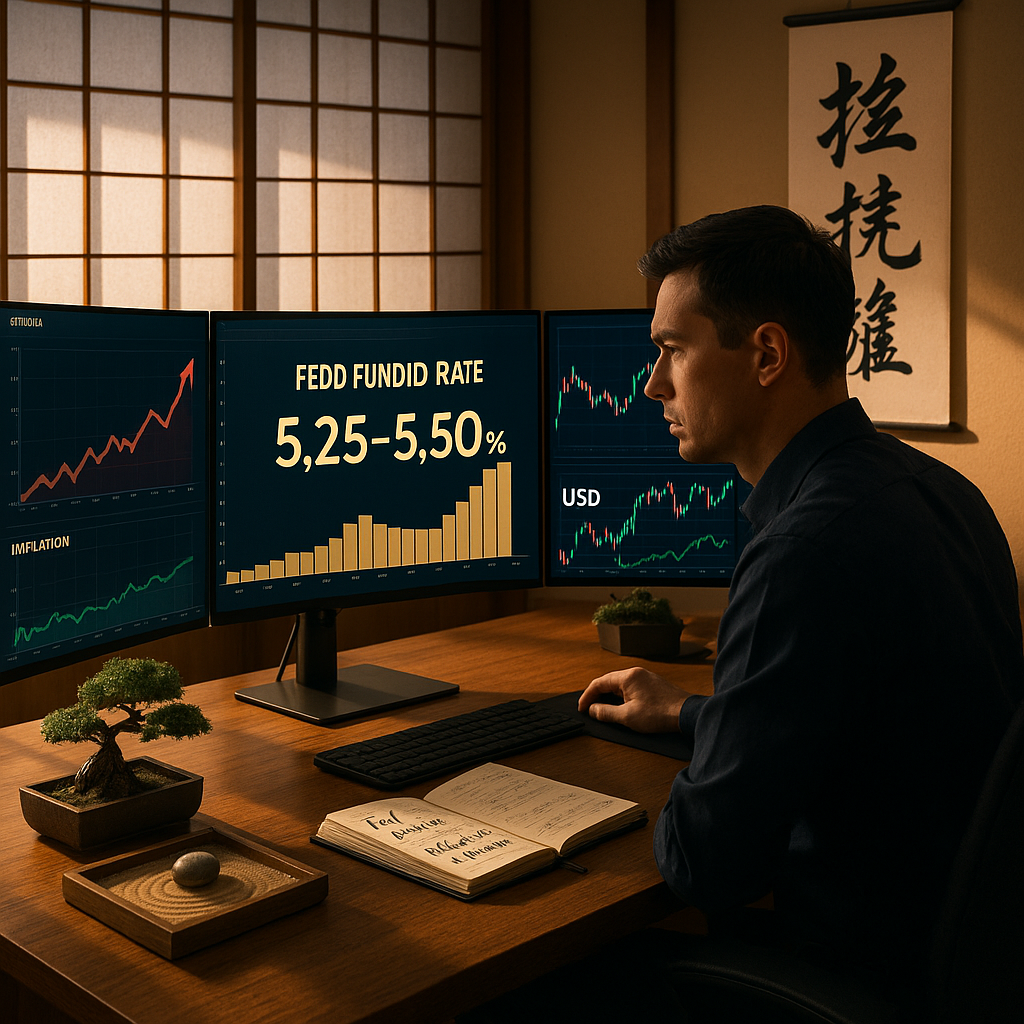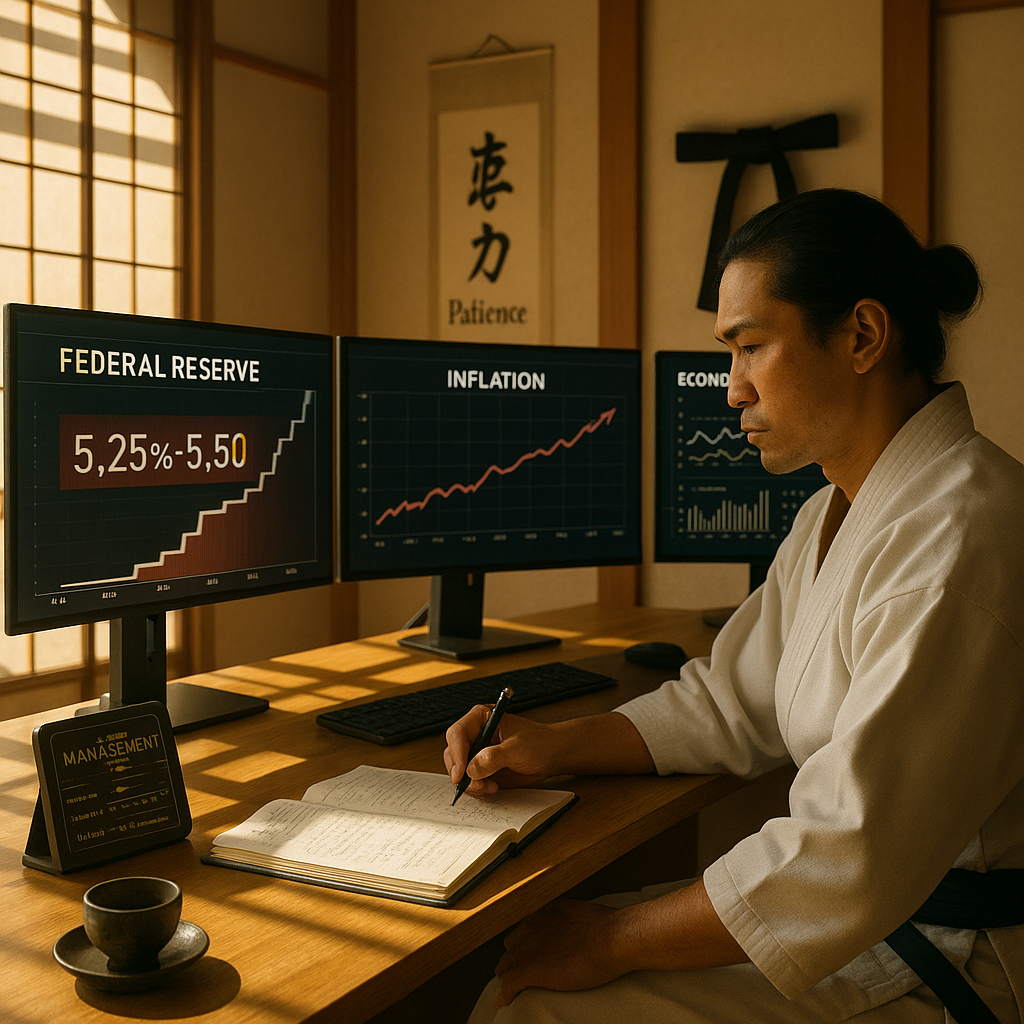Key Takeaways
- Training discipline through repetition engrains mastery. Consistent, repeated practice shapes reliable trading habits and sharpens your psychological rhythm, minimizing the influence of emotions and reducing uncertainty.
- Predictable routines foster steady focus and resilience. Building enduring routines conditions your mind for commitment, empowering you to withstand setbacks and remain composed under stress.
- Micro-habits build macro-results. Small, deliberate actions practiced daily accumulate over time, developing mental toughness and transforming discipline from a conscious choice into an automatic response.
- Discipline is forged, not found. The journey to self-mastery is paved by structured routines. Embracing repetition turns willpower into reflex, freeing up cognitive energy for strategy and adaptation.
- Adaptability develops within structured practice. The more you reinforce disciplined behaviors, the more confidently and calmly you can pivot in the face of market volatility, strengthening both flexibility and self-assurance.
By adopting the mindset of a martial artist, you discover that discipline in trading is not born from fleeting motivation, but from intentional repetition and mindful practice. Explore the path to cultivating your personal psychological rhythm and unlock authentic, lasting trading mastery.
Introduction
True discipline does not arise from sporadic motivation. It is built quietly through daily, intentional repetition. For traders seeking steadier hands and sharper focus, mastering psychological rhythm relies less on bursts of willpower and more on establishing routines that govern your decision-making.
Making each trading session a deliberate ritual teaches your mind to resist distractions and anchor your focus, even in the face of market turbulence. When small, purposeful habits are repeated over time, they build the foundation for resilience and adaptability. By treating repetition as your training ground, you transform discipline into an automatic reflex. That is the cornerstone of true self-mastery in trading.
Understanding Psychological Rhythm in Trading
Trading, much like martial arts, requires a delicate blend of technical proficiency and inner equilibrium. Psychological rhythm forms the core of consistent trading, fostering a state where decisions emerge seamlessly from disciplined practice instead of emotional impulses.
Stay Sharp. Stay Ahead.
Join our Telegram Channel for exclusive content, real insights,
engage with us and other members and get access to
insider updates, early news and top insights.
 Join the Channel
Join the Channel
The Science of Trading Rhythms
The human brain is inherently engineered to recognize patterns and rhythms, enabling it to optimize performance while conserving mental energy. Establishing structured routines that align with your cognitive peak periods improves trading outcomes. Neuroscience reveals that mental fatigue severely diminishes decision quality. That’s a vital consideration for traders who need sustained sharpness during volatile market sessions.
Elite athletes sustain high performance through carefully balanced cycles of training and recovery. In trading, applying these same principles means interspersing periods of concentrated market focus with regular pauses for reflection and rest. This prevents decision fatigue and helps maintain a sharp edge throughout the day.
Building Your Trading Ritual
Transforming disjointed activities into a consistent and purposeful trading ritual strengthens your psychological rhythm. Consider integrating the following elements:
- Pre-Market Preparation
- Conduct a comprehensive market overview (15 minutes)
- Identify key support and resistance levels (10 minutes)
- Review and adjust your trading plan (10 minutes)
- Active Trading Session
- Reassess market conditions regularly (every hour)
- Monitor open positions systematically (every 30 minutes)
- Take structured breaks to reset attention (5 minutes every hour)
- Post-Market Review
- Document your trading performance in a journal (20 minutes)
- Evaluate strategy effectiveness (15 minutes)
- Prepare for the next trading day (15 minutes)
Establishing this ritual creates a reliable framework, reducing uncertainty and freeing up mental bandwidth for higher-order decision-making.
From Conscious Effort to Natural Flow
The evolution from deliberate, effortful practice to automatic mastery parallels the progression in martial arts training. In the early stages, every action requires conscious attention. Over time, repetition ingrains these routines until they become second nature.
Phases of Developing Trading Rhythm:
- Stage 1: Rigidly following external routines
- Stage 2: Grasping the reasons behind each step
- Stage 3: Adapting practices fluidly without losing core discipline
- Stage 4: Internalizing trading principles for unconscious, effective execution
With persistent practice, discipline morphs from a forced task into a natural component of your trading identity.
Adapting Without Breaking Rhythm
Financial markets are dynamic, demanding that traders balance steadfastness with adaptability. Like a martial artist who responds to different opponents with subtle shifts yet maintains foundational principles, skilled traders adapt to new conditions without losing their central rhythm.
Adaptive Trading Rhythm Framework:
- Preserve key routine elements regardless of market changes
- Develop predefined responses for varied market environments (e.g., volatility spikes, trending vs. ranging markets)
- Practice switching between strategies smoothly
- Routinely evaluate and refine when and how to adapt
This approach ensures flexibility is built on a base of unwavering discipline, not reactive improvisation.
mental agility allows traders to adjust their rhythm in volatile and uncertain market conditions, transforming rigidity into resilience.
The Mind-Market Connection
Strengthening psychological rhythm reveals the powerful link between mental state and effective market interpretation. Outcomes in trading frequently depend more on psychological alignment than pure technical skill.
Critical Psychological Alignments:
- Morning preparation that syncs with the market’s opening tempo
- Decision-making peaks matched to periods of heightened market activity
- Intentional recovery periods scheduled during low-volume times
- Structured review sessions timed with market closures
By leveraging these natural rhythms, traders optimize both focus and performance.
morning trading routine habits can help set this alignment, priming both mind and body for market demands.
Micro-Habits and Trading Excellence
Micro-habits (small, consistent actions) lay the groundwork for peak trading performance by embedding discipline into every aspect of your process.
Stay Sharp. Stay Ahead.
Join our Telegram Channel for exclusive content, real insights,
engage with us and other members and get access to
insider updates, early news and top insights.
 Join the Channel
Join the Channel
Essential Micro-Habits:
- Pre-Trade Checklist
- Confirm market context and major news drivers
- Validate risk parameters for each trade
- Check in with your current emotional state
- In-Trade Discipline
- Practice brief breathing exercises before key decisions
- Double-check position sizes for risk control
- Reaffirm stop-loss levels, ensuring compliance with your plan
- Post-Trade Protocol
- Record trades and initial reactions in your journal immediately
- Assess outcomes without self-judgment. Focus on process, not just outcomes
- Extract a single lesson for improvement from each trade
By repeating these micro-habits, traders hardwire discipline, reduce emotional volatility, and accelerate continuous learning.
You can further boost discipline by incorporating discipline habits used by top trading professionals into your daily process.
Mastering Market Rhythms
The pinnacle of trading excellence is achieved when your psychological rhythm attunes to the pulse of the market itself. This kind of harmony unlocks:
- Accurate, intuitive identification of shifting market regimes
- Effortless alignment with emerging opportunities
- Stable emotional composure, even in turbulent environments
- Instinctive application of risk management practices
Across industries, mastering this type of rhythm separates elite performers from those who struggle with inconsistency. In healthcare, for instance, similar structured routines support diagnostic accuracy and reduce burnout. In education, daily learning rituals help students internalize complex skills. In finance, routines around portfolio review and risk checks are essential for minimizing errors and maximizing long-term gains.
To deepen your understanding of the psychological and practical dimensions of trading rhythm, visit our trading psychology resource hub.
Through dedicated practice and the cultivation of disciplined rituals, traders can transform their approach from a series of reactionary decisions into a seamless, adaptive art. It mirrors the mastery exhibited by seasoned martial artists.
Conclusion
In trading, psychological rhythm is not an afterthought but a core requirement for lasting mastery. By integrating structured rituals, adaptive routines, and powerful micro-habits, traders forge the resilience and consistency needed to thrive in ever-shifting markets. The transformation from sporadic success to enduring excellence comes not from occasional motivation, but from relentless, purpose-driven repetition.
Aligning your trading discipline with your cognitive rhythms and continually refining your personalized routine unlocks a heightened state where decisions are clear, adaptable, and emotionally steady. Just as a martial artist’s movements become an expression of their inner mastery, your psychological rhythm becomes the silent engine powering every effective trade. As the markets evolve, the traders who thrive will be those who treat discipline as a daily practice. Anticipating change, adapting strategically, and mastering themselves on the journey matters most. The real question is not whether you will build your psychological rhythm, but how intentionally you will cultivate it to secure your edge in the dojo of the markets.
Strategy. Discipline. Mastery. | The Way of the Market Warrior





Leave a Reply